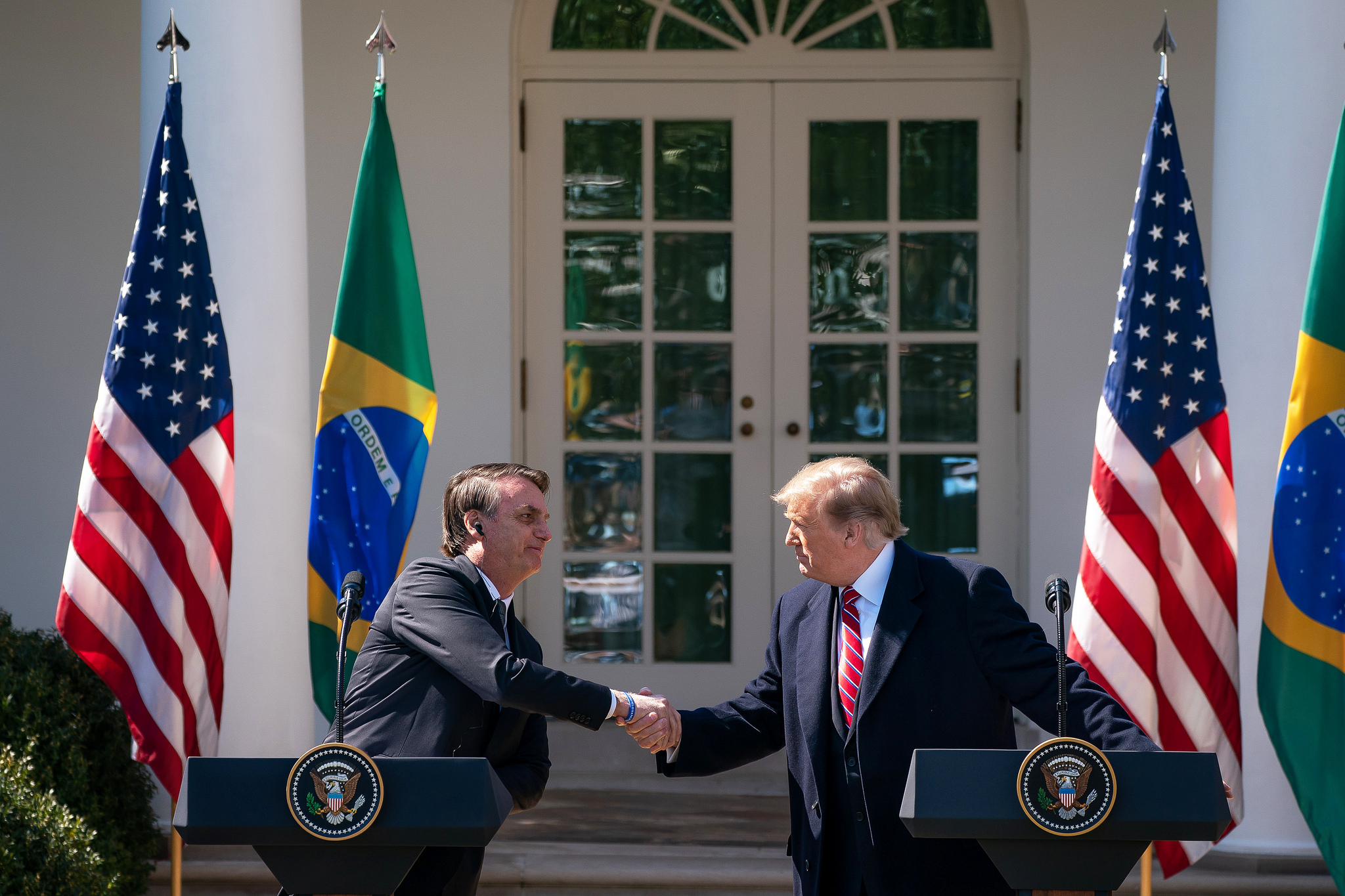
President Trump Welcomes the President of the Federative Republic of Brazil to the White House. (Official White House Photo by Tia Dufour)
The rapidly growing relationship between Brazil and the United States since the election of Jair Bolsonaro in October 2018 was emphasized in the March meeting at the White House of the two leaders. They are said to have a common outlook, to the extent that Bolsonaro has been termed the “Trump of the Tropics.” The U.S. President stressed that ties between the two most significant nations in the western hemisphere, “Have never been closer.”
The relationship is a break from the past. Bolsonaro noted that past leaders of his nation were anti-U.S. in their outlook. His nation has previously suffered from a host of government-related problems, preventing the vast nation, almost equal in size to the United States, from reaching its potential. Brazilians, reflecting that, have often said that “Brazil is the country of the future, and always will be.”
Observers across the world have long anticipated Brazil’s emergence as a great power, an event, like the cliché quoted above, that always seemed delayed. A UNZ review notes that “With its ample lands and resources (e.g. iron, oil), not to mention its successes with sugar cane-derived ethanol, Brazil is set to enjoy – much like Russia – a comfortable existence as a regional hegemon in a world of high prices for food, energy and minerals. Its military strength is paltry, but irrelevant given its distance from other Great Powers.”
Arab News believes that “it is no longer inconceivable that Brazil will emerge in the next few decades alongside India and China as one of the world’s economic superpowers…This is happening in a country that is the world’s fifth largest both in population and size. It is highly industrialized country with over 80 percent of its people urbanized. The city of São Paulo’s economy is larger than the whole of Argentina’s. Moreover, Brazil is home to the world’s largest tropical forest and Brazil has the world’s largest reservoirs of freshwater and ample hyrdo electric power. It is self-sufficient in oil and gas. Brazil has a head start on India and China. It has been developing in its sometime madcap way for over 100 years.”
Bolsonaro is a much-needed change from the socialist policies of the corrupt but famous Lula, the former Brazilian president convicted and imprisoned for his misdeeds.
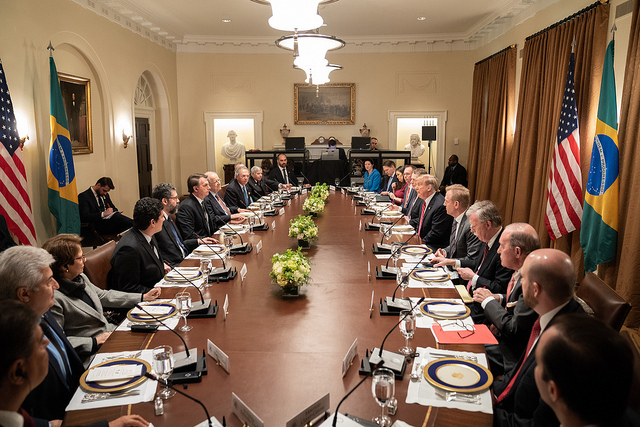
President Trump Welcomes the President of the Federative Republic of Brazil to the White House. (Official White House Photo by Tia Dufour)
Felipe Moura Brasil, a Brazilian journalist writing for Prager University explains:
“In 2002, a socialist politician named Lula da Silva ran for the presidency…the old message about the need for income redistribution to decrease inequality was still there…It only got worse under his successor, Dilma Rousseff. The socialists increased government spending, deficits, and debt…Lula’s socialist paradise fell apart and the economy fell with it…The economy shrank 3.8 percent in 2015, the worst result in 25 years. That same year, a World Bank survey found Brazil’s economy to be one of the world’s worst. Out of 189 countries…Economically and morally, the almost 15 years of socialist policies…greatly harmed Brazil.”
Reflecting the growing closeness of the two Western Hemisphere powers, Washington and Brasilia have several agreements already. The U.S. Strategic Command (USSTRATCOM) signed an agreement with the Brazilian Ministry of Defense to share Space Situational Awareness (SSA) services and information. Rear Adm. Richard A. Correll, director of plans and policy for USSTRATCOM, signed the agreement as part of a larger effort to build a closer defense partnership with Brazil that will enhance each nation’s awareness within the space domain increasing the safety of their spaceflight operations.
On March 18, U.S. Assistant Secretary of State for International Security and Nonproliferation Christopher Ford and Brazilian Minister of Foreign Relations Ambassador Ernesto Araujo signed the Technology Safeguards Agreement between the Government of the United States of America and the Government of the Federative Republic of Brazil on technology safeguards associated with U.S. participation in space launches from Brazil.
President Trump has also opened discussions on the possibility of bringing Brazil into the NATO alliance.
Frank Vernuccio is editor-in-chief of the New York Analysis of Policy and Government.



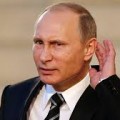
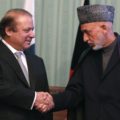
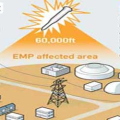











Follow Us